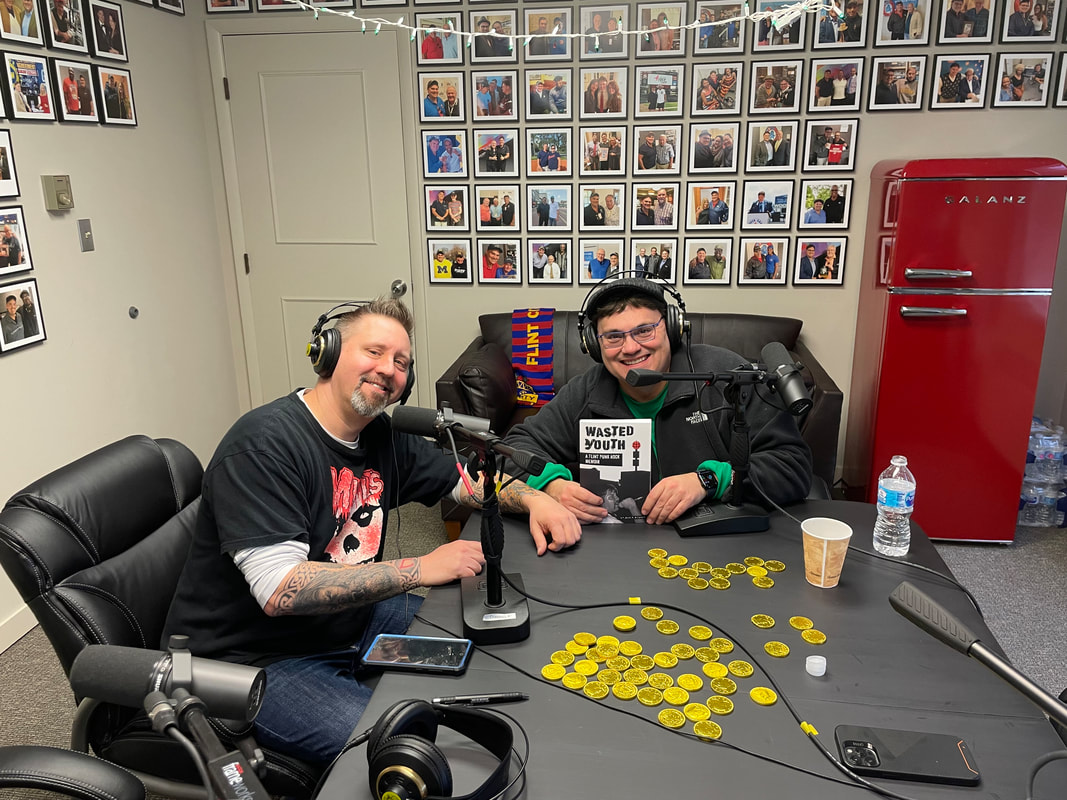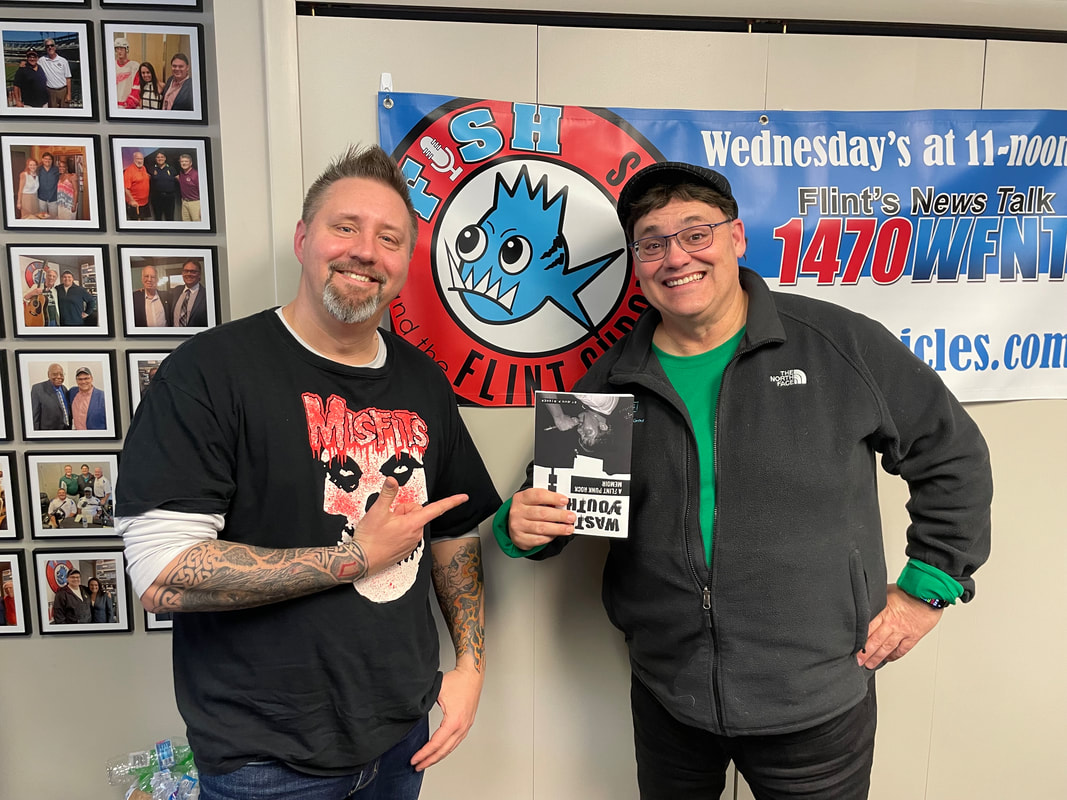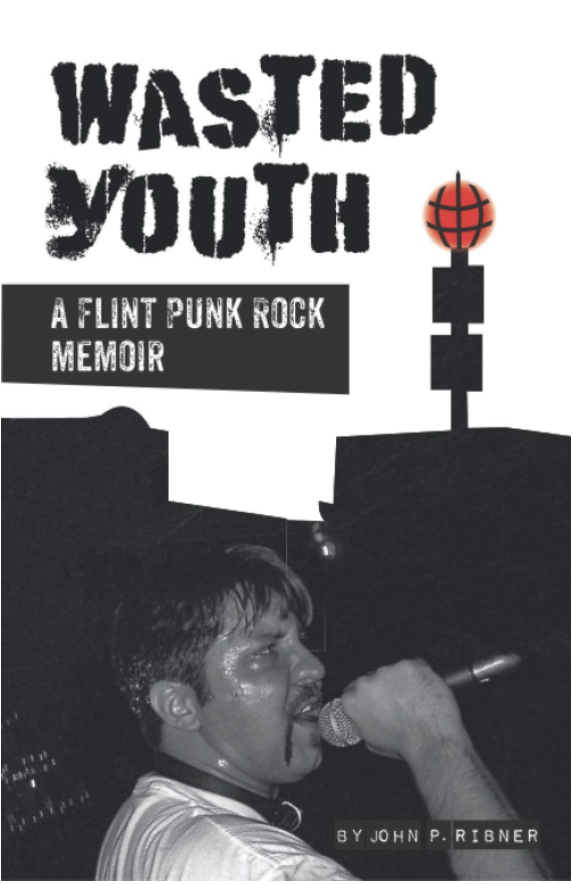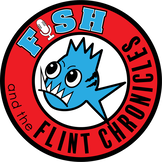ShowsJ.P. Ribner
Author, Punk Rock Musician March 30, 2022 “Flint, Michigan is a tough and pitiless town.”
That’s J.P. Ribner’s assessment of the town he grew up in. He says that hard core culture left him feeling “alienated and disenfranchised.” He turned to Flint’s exploding punk rock scene for solace and identity and became one of the key players of the culture. Like many men who get to a certain age, he decided it was time to reflect on his life. Unlike most, he decided to write a book about it. That book, Wasted Youth, is a deep dive in to his psyche and experience, that also exposes the Flint punk scene of the time. It’s an honest and authentic leap in to the world he knew, the dysfunctional family he grew up in, and the city that hosted it all. It’s a book that isn’t what you think it will be on several levels. It’s not a nostalgic celebration of that era, nor a condemnation. Instead it’s like life - some good, some bad, and a lot of learning things the hard way. Ribner knew he was miscast at Hamady High, where he says he was a lone wolf without a pack. To find his pack he went to the least likely venue to locate hard core punk rockers (or maybe not as it turns out) - Flint Powers Catholic. That school put him in touch with relationships and opportunities that would lead him to the bricks of Saginaw Street in a starring role in the drama that would play out in musical notes, Mohawks, piercings, and attitude. In other words, he found his pack and his calling. But the story doesn’t end there. This isn’t a Flint punk version of Fast Times at Ridgemont High. For example Spicoli didn’t get shot in the back for walking down the street like Ribner did. No one in Fast Times felt like they might get gunned down at any moment. Ribner did. And he was. Of course, Ridgemont didn’t take place in Flint. There are zero punches pulled and Ribner calls out abusive parents, bouncers who smacked him around, and in keeping with the honesty of the book, he calls himself out. That kind of self exploratory writing can often dissolve in to self pity or navel-gazing, boring reflection. Neither of those things occurs in Ribner's book. You are surprised and even shocked by some of the things he reveals. If you’re from Flint or hung out downtown in that punk era, you’ll recognize the terrain. If you’re not, you’ll recognize many of the other themes from life. One of the key takeaways for me was that although Ribner found his ‘pack’ no one ever really had his back. That was the biggest deficit in his story, especially in a place like Flint where going it alone was a really bad idea. Most glaring of all, was when Ribner was shot at age 17, his parents thought that he should apologize. As he puts it, “It didn’t take long to heal from the bullet wound. Getting over the emotional trauma was the real challenge.” He was told by one friend of his parents that his getting shot in the back was an “important social and political expression from an oppressed minority” (Ribner’s assailants were black and he is white). Others tried to educate him on Civil Rights, some dispensed religious theory. When Ribner rebuffed these efforts his dad threatened to harm him. Ribner says “I was almost murdered because of the color of my skin. And, because of the color of the shooter's skin, I wasn’t allowed to talk about it.” It wasn’t just his parents who vilified him for having the audacity to get himself shot, it was kids in the neighborhood too who felt he probably got shot for having a mohawk. In other words, he was asking for it. In the end, the theme of being the lone wolf and going it alone with little to no support in general is only amplified when considered in light of the severity of the crime. Punk rock and the violence of the performances, the anger of the lyrics, the aggressive stance and culture would somehow be proxies for the supportive framework his life lacked. That his journey through arguably the toughest town in America led him to a reflective middle aged assessment is perhaps the most surprising part of the book. Ribner is a smart, articulate guy who tells his tale without letting the dirty parts smudge out the picture he paints. It’s a story of a man and a time and place that reflected so much of what was going on in America at the time. It’s that theme that allows the book, and Ribner’s story to transcend the purely autobiographical and enter the realm of relatability. J.P. Ribner joins Fish in the Aquarium to break it all down. It’s a journey in to punk, Flint, and a culture that still resonates with thousands of Flintstones, punkers, and folks who remember the party downtown with affection. |
|





